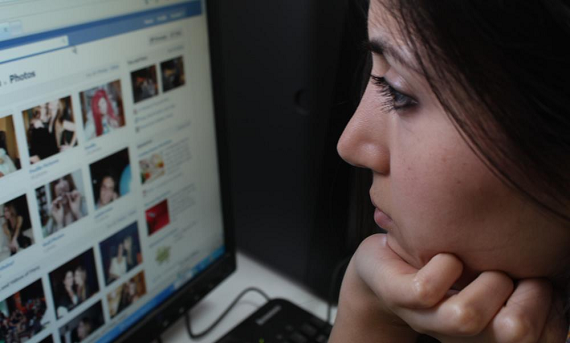
There is a theory that I’ve heard ever since Facebook debuted: that, because most people only posted the best aspects of themselves, it made those reading those posts feel bad about themselves since they could not see the other side of the lives of their friends. They only saw the weddings, the baby births, the job promotions, and none of the day to day crap everyone has to deal with.
A new study has taken a look at how looking at Facebook affects users over a long period of time.
Spending time on Facebook makes people feel less satisfied with their lives, according to a new study from the University of Michigan.
To measure the effect that Facebook had, the study surveyed a total of 82 people, who were recruited for via flyers posted around Ann Arbor, Michigan. Participants needed a Facebook account and a touch-screen smartphone to qualify for the study.
The Participants first completed a questionnaires, in which they had their self esteem tested, and were asked why they used Facebook, with nearly everyone saying that they used to keep in touch with friends.
The study then consisted of sending the participants 5 text messages per day between 10 am and midnight over 14-days, asking them questions about how they felt, as well as how much they had used Facebook in the time between the last text.
The other four questions were: “How do you feel right now?,” “How worried are you right now?,” “How lonely do you feel right now?” and “How much have you interacted with other people “directly” since the last time we asked?”
All five questions were answered by ranking on a scale from 0 to 100.
The results eventually showed that the social network did have a negative affect on the participants.
“The more people used Facebook at one time point, the worse they felt the next time we text-messaged them; the more they used Facebook over two-weeks, the more their life satisfaction levels declined over time,” the researchers said.
“On the surface, Facebook provides an invaluable resource for fulfilling the basic human need for social connection. Rather than enhancing well-being, however, these findings suggest that Facebook may undermine it.”
Of course, this is just one study, and it only sampled 82 people, when 1.5 billion use Facebook. But this is the first study to track the ups and downs of people’s moods over time, and see how that correlated with their Facebook usage.
Facebook, and social media in general, have completely altered the way we communicate over the past decade. I’m positive that this will not be the last study that tries to measure the effect that has had on society, and on individuals.
This study was first reported by the Los Angeles Times on Wednesday. Facebook could not be reached for comment on the results of the study.
(Image source: http://www.digitaltrends.com)















